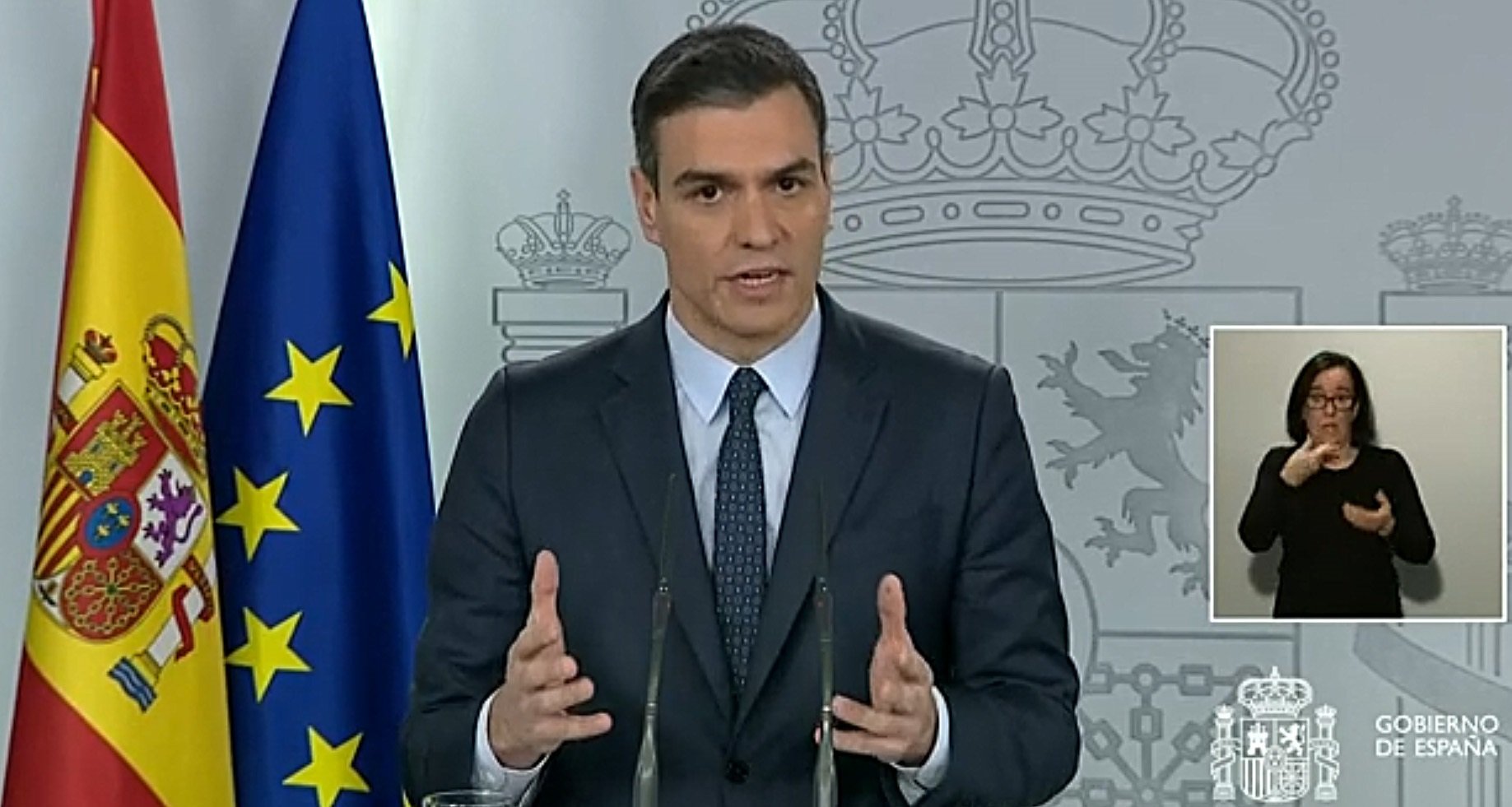Spanish prime minister Pedro Sánchez announced this Sunday to the autonomous communities’ presidents that the country's state of emergency will be extended for another 15 days. The government wants to increase by two weeks the population’s isolation in order to fight against the Covid-19 pandemic.
The restrictions would extend over and beyond Easter week, a major holiday in Spain. In order to do so, the Spanish government must get the approval of parliament. There are almost 25,000 infected and 1,326 people have died due to coronavirus in Spain. In the last 24 hours, 5,000 new cases have been detected and there have been over 300 deaths.
At a videoconference Spanish PM Pedro Sánchez, together with ministers Salvador Illa (health), Margarita Robles (defence), Fernando Grande-Marlaska (interior), and José Luis Ábalos (transport), discussed the Covid-19 crisis with the presidents of all the autonomous communities.
The meeting comes the day after the Spanish leader defended the measures taken by his government in a televised adress to the nation.
After the meeting, Sánchez also announced several new measures:
Ban on all non-essential flying
As from today flying is banned unless absolutely necessary for a month. The Spanish government announced this Sunday the 30-day ban on all non-essential flights in order to stop the coronavirus pandemic.
Private residential care made available
All autonomous communities may use the facilities and human resources of private residential care for the elderly. The objective is to reduce overcrowding of public residential care and improve attention to the elderly.
Deployment of the military
Out of all the measures the increase of military powers stands out. From now on the Army will be in charge of transporting ─ overland or by air ─ all patients from overcrowded centres to nearby hospitals. The Army will also guarantee the transport of all healthcare personnel for emergency calls.
Home distribution and future reserves
The government will also facilitate home distribution of pharmaceuticals and food, for those most in need. Referring specifically to the elderly, the government stressed that “this is a way to further protect them and reduce their need to go out, and hence the possibility of contagion.”
As the final measure, the government announced it has already put in place a “strategic reserve of necessary products in prospect of future pandemics”

